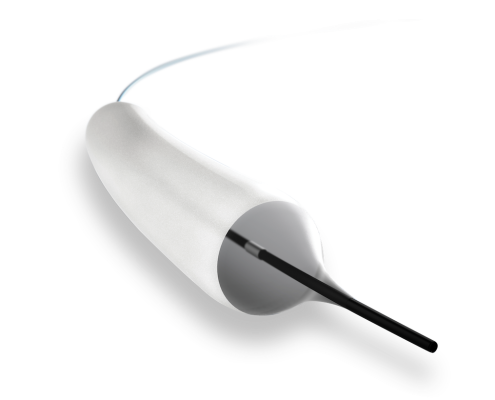Optilume Urethral Stricture Treatment

Georgia Urology surgeons are leaders in urethral reconstruction and treatment of urethral strictures, which address the narrowing of the urethra—the tube that carries urine from the bladder out of the body. From straightforward strictures to complex cases, we are always at the leading edge of urologic technique and technology.
Urethral strictures can cause serious lifestyle impediments and symptoms such as decreased urine stream, incomplete bladder emptying, spraying of the urine stream, difficulty, straining, or pain when urinating, increased urge to urinate or more frequent urination, and urinary tract infections.

To offer our patients the widest variety of treatment options with the best outcomes, we often perform a urethral stricture treatment known as Optilume. This is a state-of-the-art balloon dilation procedure that mechanically expands the diameter of the urethra in strictures up to 3 centimeters but also delivers medication to the consequent micro tears in the urethra to minimize scar tissue proliferation. As such, it significantly reduces the risk of recurrence of the stricture. Indeed, one of the biggest and most common concerns of urethral stricture treatment is the re-narrowing of the urethra (recurrence) due to scar tissue fibrosis.
Our urologists have had encouraging results using Optilume. During this outpatient procedure, the physician inserts a scope carrying a deflated balloon coated with a chemotherapeutic medication. Not only does the balloon dilate and open the urethra, but the medication coats the urethral tissue and helps prevent scar tissue from recurring by inhibiting the division and growth of scar tissue cells.
This device maintains its less invasive properties while offering a high degree of effectiveness.
Why We Need to Treat Urethral Strictures
“Urethral strictures are quite common in men, especially as they age. It is estimated that six out of every thousand men over 65 develop a urethral stricture from one or more potential causes. While we have several simple options to repair a stricture, the biggest concern is that they frequently recur,” says Dr. Kriteman of Georgia Urology. “Optilume gives us a minimally invasive option that addresses the initial stricture and the risk of recurrence. It gives us a minimally invasive option before deciding on a urethroplasty, which is much more invasive though necessary in some patients.”
In some cases, the stricture can cause severe narrowing of the urethral channel, which can lead to difficulty urinating to the point where the person can go into urinary retention and can’t urinate at all. This emergency must be treated at a hospital as soon as possible to avoid serious outcomes.
“Interestingly, the medication used in Optilume, known as paclitaxel, is used in chemotherapy as well, but only a tiny amount is used during this procedure,” Dr. Kriteman explains. “Unlike chemotherapy, the medication isn’t absorbed into the bloodstream, and there are no effects on vital organs. The procedure has an excellent safety profile, and studies have shown success in upwards of 85% of patients.”
If you or someone you know suffers from urethral stricture, make an appointment with a Georgia Urology urologist at one of our Atlanta offices.
